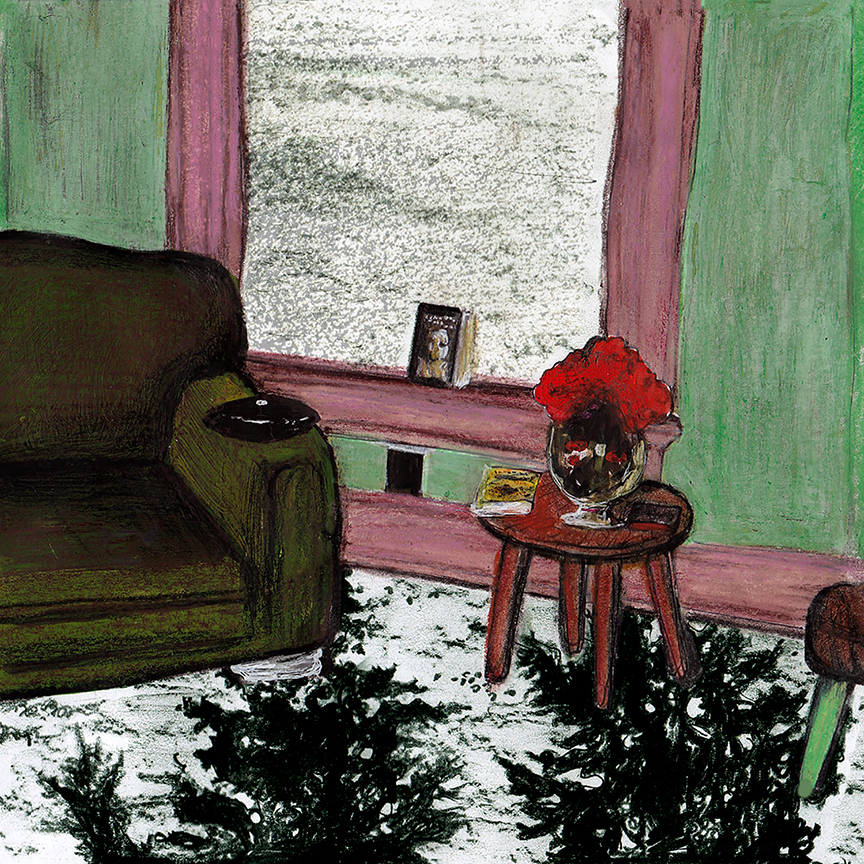Some music doesn’t make you want to dance or sing, it doesn’t have words (or they are inaudible), isn’t beautiful or ugly, and is neither shocking in its decadence nor beguiling in its minimalism. It isn’t pop, and it isn’t obviously original. Instead, it is ambiguous and exists somewhere in between all of these qualities along the infinite plane of imagination, possibility and potential. This music has very little commercial appeal because it demands an explanation, and offers even less definition than the average release. This is not what many people are looking for from music. The onus is on you as the listener to come up with an interpretation and to create meaning. Perhaps it is the tone, or the musicality, or a snippet of comprehensible lyricism. But only you can unlock it, and if you don’t try, there is no hope.
I think that the music of Jandek fits into this category. His first album, 1978’s Ready for the House, is the kind of thing that causes people to ask themselves, ‘Why am I listening to this?’ There is no obvious payoff, and no instantly pleasing attributes. Instead, what we have is one softly strummed, out-of-tune acoustic guitar, and one deeply disconcerting ghost of a voice, whispering what one gathers are fairly dour sentiments. No particular talent is on display here, other than for creating an unnerving atmosphere. But it is exactly this perplexing quality that can be so mind-expanding for us as music listeners. It is a feeling that I have always noted as I discover some new frontier on my musical horizon: the questioning of why it exists as it does. Ready for the House is essentially one chord throughout, and feels inert. It is the opposite of a lot of the music we hear, and is enjoyable to me because it lacks the qualities of popular music. This makes it fertile ground for all kinds of unique mental activity. Ready for the House makes my mind wander to places most music doesn’t cause me to go.
Similarly, the late 2015 album Vertigo by The Necks is devoid of common convention. But here there is one obvious difference: demonstrable musical talent. In some ways it is even stranger that professional musicians would set out to make this kind of fractured music than an amateur auteur like Jandek, but just as inspiring. After listening to the Jandek record, this album sounds rich with notes and textures, but I think it still exists out on that undefined vista of free and open ambiguity. There is no singing here, just constantly changing splatters of sound and music. The drones are consistently interrupted, which negates the effect that drone music usually has. But just as Ready for the House has an almost oppressive musical continuity, there is a relentlessness to Vertigo. There are no crescendos, it simply evolves. As people who live in a world dominated by popular music we are trained to listen for tension and release, and anything that only builds tension is bound to stand out. In fact, it is probably this quality which unites the two albums in terms of compositional approach.
I don’t think that all music must challenge our preconceived notions of what makes listening to it an enjoyable experience. Sometimes, in order for the more directly communicative aspect of music to take place, we must be able to accept it instantly so that we can comprehend it. This is what makes music such as folk and pop such potent vehicles for ideas, radical or otherwise. But it is also important, and pleasurable I might add, to be constantly expanding our boundaries so as to build new kinds of acceptance into our musical ontology. It is good to seek these things out because it reminds you of the limitless potential of creation in all mediums, and the boundlessness of human expression.


